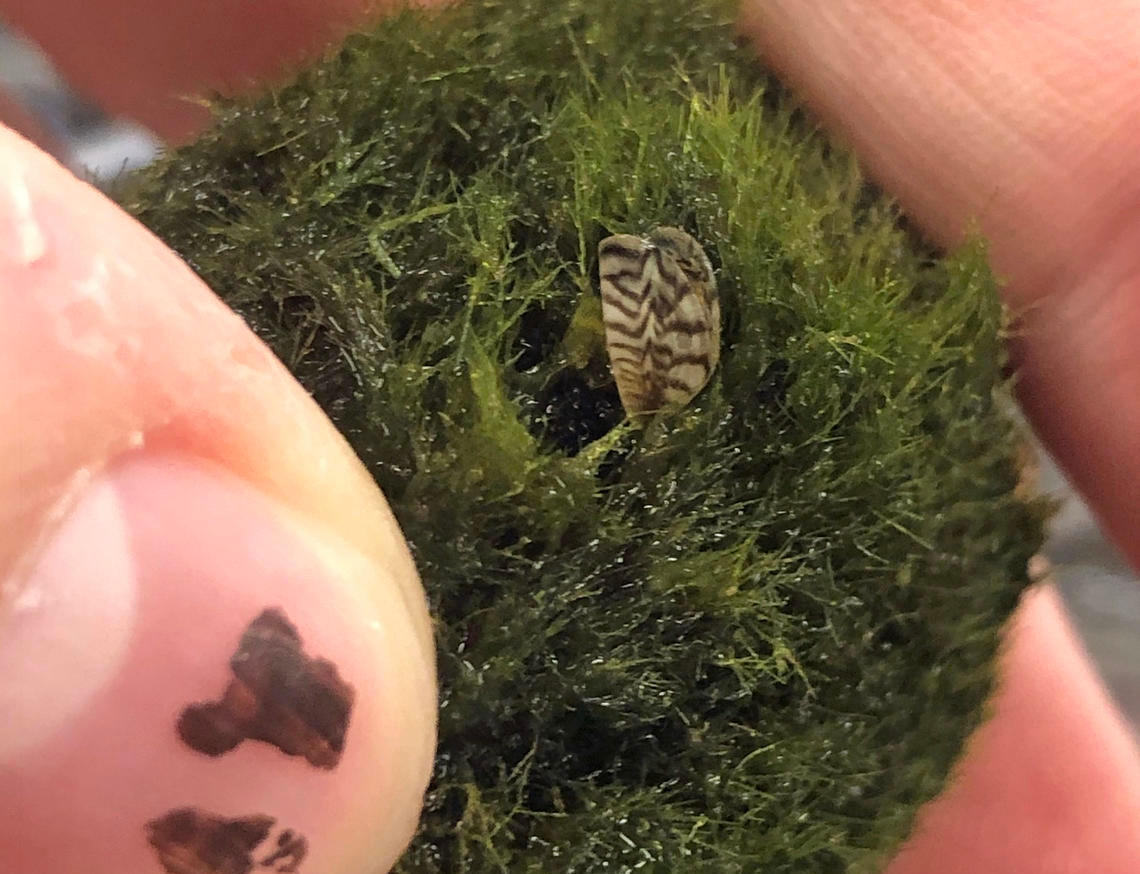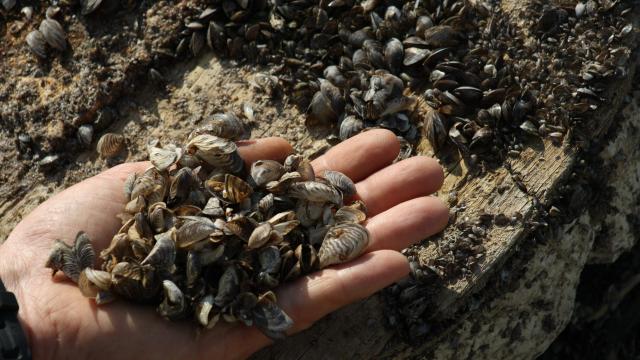Balls of moss commonly found in aquariums are threatening to push the zebra mussel invasion further across the U.S., wildlife officials are warning. Contaminated moss balls have been found in pet stores in 21 states in recent weeks, and both officials and the pet supply industry are scrambling to contain the problem before it’s too late.
Judging by their name alone, the fingernail-sized zebra mussel might not seem like the most fearsome creature to be worried about. What makes them so dangerous, though, is their ability to adapt. Once introduced to a new lake or other body of freshwater, they can quickly crowd out and devastate local populations of other mussel species. Their rapid growth isn’t great for us either, since they can clog up the intake pipes in our water treatment and power plants, while also damaging boats and fishing equipment. That puts pressure on already-strained infrastructure dealing with more deluges and algae outbreaks driven by the climate crisis and human land use choices.
First discovered in the Great Lakes in 1988, scientists and wildlife officials have been trying to keep the zebra mussel from invading the rest of the U.S. ever since. Over time, it’s established itself throughout much of the eastern half of the country. But it still hasn’t spread everywhere, particularly in the western U.S.

That’s made the recent discovery of these mollusks in aquariums all the most worrying. In late February, a pet store employee in Oregon reported seeing the black-striped invertebrates hiding in moss balls to the U.S. Geological Survey, a federal agency that’s been tracking the mussel. Since then, there have been similar reports in 21 states, from California to Florida. Some reports have also traced the mussels to moss ball products sold by national pet supply chains.
“The issue is that somebody who purchased the moss ball and then disposed of them could end up introducing zebra mussels into an environment where they weren’t present before,” said Wesley Daniel, a USGS fisheries biologist and the first to send out a nationwide alert about the discovery, in a statement. “We’ve been working with many agencies on boat inspections and gear inspections, but this was not a pathway we’d been aware of until now.”
The USGS, Fish and Wildlife Service, local wildlife agencies, and the pet supply industry are now racing to understand just how pervasive this contamination is and if there’s anything that can be done to nip it in the bud.
Already, they’ve drawn up instructions for local aquarium and fish tanks owners on how to safely decontaminate and destroy their moss balls should they find these mussels. Methods include sealing the balls into a plastic bag, then freezing them for 24 hours; boiling the balls for a full minute; or soaking them in bleach or vinegar. People are also being advised to report any zebra mussel sightings to the USGS through here.
